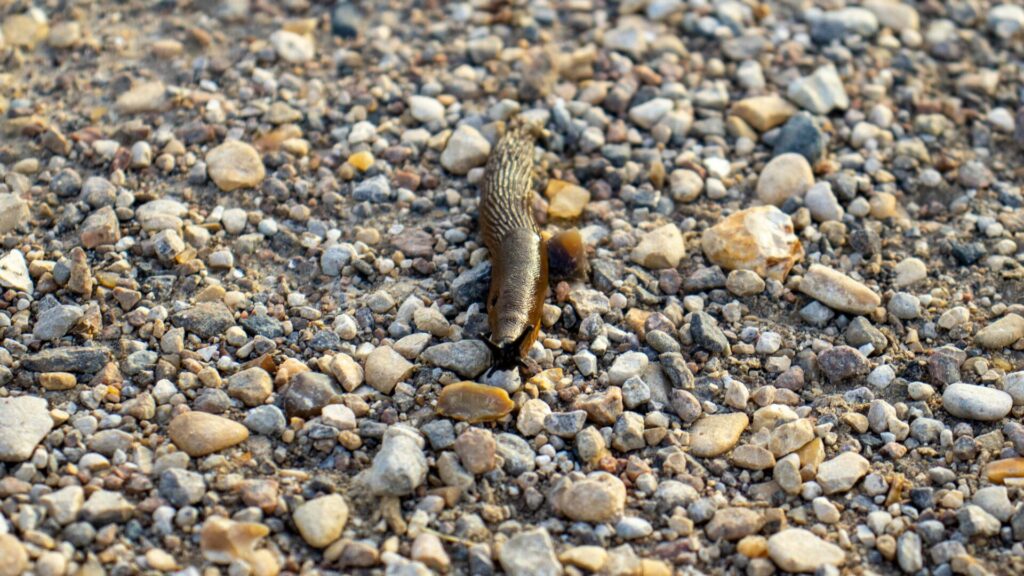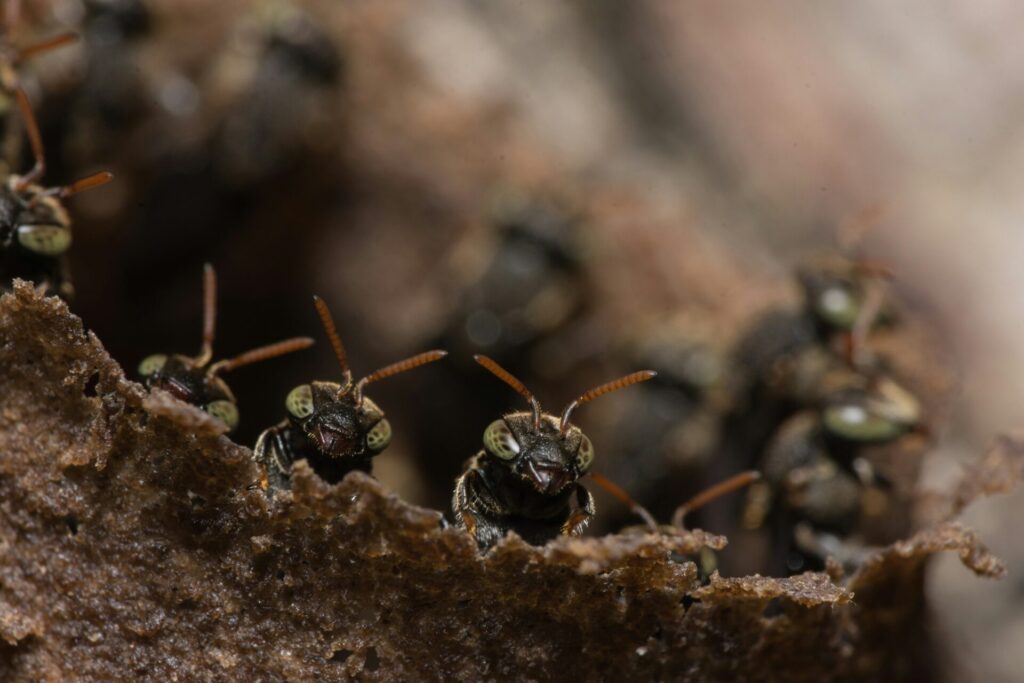Insects and pests can be a nuisance in any home, causing damage and spreading diseases. This blog post will provide you with essential pest control tips to keep your home pest-free and comfortable.
Identify Common Household Pests

Photo by Lucie Douezi on Unsplash
Recognising the variety of pests that might invade your home is a critical step towards implementing effective pest management strategies. Common invaders include ants, known for their relentless pursuit of food sources. Woodlice, which thrive in damp conditions. Fleas, often brought into homes by pets; slugs, which favour moist environments; spiders, seeking shelter and prey; wasps and bees, which may nest in lofts, eaves, and facias; and not to forget, cats and birds that might be attracted to your garden or outdoor spaces for food or shelter.
Each of these pests presents unique challenges. Ants, for instance, can form extensive colonies, making them difficult to eradicate once they’ve established a presence inside your home.
Woodlice, while not harmful, can be a sign of excess moisture and may indicate a larger issue with dampness in your home.
Fleas pose a direct health risk to pets and humans. Capable of spreading diseases. Slugs are not only a nuisance but can also cause damage to plants and vegetable patches.
Treatments – Slug & Snail Control | Pest Control Outdoors | Green Gardener
Flea control – Pest advice for controlling Fleas (bpca.org.uk)
Spiders, although beneficial for controlling flies and other insects, can become a concern when they invade living spaces in large numbers.
Wasps and bees, vital for pollination, become pests when they nest too close to human activity, posing a risk of stings. Remember though, Bee’s are a protected species! So try to stop them before they set up the nest!
Help the Bee’s! – Pest advice for controlling Bees (bpca.org.uk)
Cats and birds, while generally less of a concern indoors, can create problems outdoors, such as digging in gardens or nesting in inappropriate areas.
Understanding the behaviours and preferences of these pests is crucial for selecting the most appropriate control measures. This knowledge allows homeowners to target their efforts more effectively, ensuring a pest-free environment.
Keep Your Home Clean

Maintaining a high level of cleanliness throughout your home is a fundamental step in deterring pests. Focus on eliminating any potential food sources for pests by ensuring all areas. Ensure kitchens and bathrooms, are kept spotlessly clean. Crumbs and food residues can attract a variety of insects, including ants and woodlice, encouraging them to settle in your home.
Regular vacuuming and dusting can significantly reduce the presence of fleas, spiders, and other insects that might find refuge in carpets, corners, or hidden spots. Wiping surfaces and mopping floors with suitable cleaning products not only removes food particles and stains but also helps to eliminate scent trails left by ants and other pests.
It’s also important to manage moisture in your home. Fixing leaky taps and ensuring good ventilation in damp-prone areas can discourage pests like slugs and woodlice from taking up residence.
In the kitchen, make it a habit to dispose of perishable food before it spoils and to keep food in sealed containers. This practice not only keeps pests at bay but also maintains the hygiene of your food storage areas.
Remember, a clean home is far less attractive to pests. Regular, thorough cleaning disrupts the environment pests thrive in. Making it an effective strategy in your overall pest control efforts. By integrating these cleaning practices into your routine, you contribute significantly to creating a pest-resistant environment.
Seal Entry Points
Part of the Essential Pest Control Tips for Every Home list is ensuring your home is impenetrable to pests involves meticulously sealing off their potential entryways. Key areas to focus on include cracks and holes in walls, floors, and the brickwork. Similarly, gaps in eaves and facias are common sites for pests to gain access. It is particularly vital to examine around pipes and vents, as these are prime ingress points for a variety of pests seeking shelter or nesting spaces.
The task of sealing these entry points can be straightforward. For smaller gaps, using a high-quality sealant or caulk is effective. In cases of larger openings, consider installing wire mesh or metal plates to block access. This is especially relevant in lofts and small spaces where birds, bees, and wasps might attempt to enter and establish nests. Additionally, inspect the integrity of window and door seals, as even the smallest breach can provide an entry point for insects and other pests.
For homes located in areas like Daventry or Rugby, where the building structures might vary significantly, paying attention to the condition of brickwork and the spaces around eaves and facias is crucial. Over time, weathering can create new openings or widen existing ones, making periodic inspection and maintenance essential.
Remember, the goal is not just to block current entryways but also to anticipate potential future breaches. Regular checks and maintenance of these areas can significantly reduce the likelihood of pests finding their way into your home. Implementing these measures forms a critical component of a comprehensive pest management strategy, working in tandem with cleanliness, natural repellents, and proper food storage to create a hostile environment for pests.
Use Natural Repellents
Incorporating natural repellents into your pest control regime offers an eco-friendly and safe alternative to chemical products. Essential oils, such as peppermint, lavender, and tea tree, are known for their pest-repellent properties. A few drops in areas prone to pest activity can deter a variety of insects.
For instance, peppermint oil is particularly effective against spiders, ants, and mice. Similarly, vinegar, with its acidic nature, acts as an excellent repellent for ants and fleas. Spraying diluted vinegar in areas where these pests are frequently seen can help keep them at bay.
Diatomaceous earth is another natural repellent that works by dehydrating the exoskeleton of insects, leading to their demise. Sprinkling a thin layer around the perimeter of your home, under sinks, or near entry points can prevent the ingress of crawling pests. This method is especially useful against ants, fleas, and cockroaches. It’s important to use food-grade diatomaceous earth to ensure safety for pets and children.
These natural solutions not only reduce the need for chemical interventions but also contribute to a healthier living environment. They can be used independently or in conjunction with other pest control strategies for enhanced effectiveness.
However, it’s crucial to apply these repellents consistently and in the recommended manner to achieve the best results. Integrating natural repellents into your pest management plan not only helps keep pests away but also aligns with eco-friendly practices, making it a win-win for both homeowners and the environment.
Store Food Properly

Storing food in an appropriate manner is crucial in deterring pests from invading your kitchen and larder. Utilising airtight containers for food storage is a simple yet effective strategy. These containers seal off the scent and accessibility of food, making it less enticing to pests such as ants, cats, birds, and rodents. By doing so, the risk of contamination and infestation is significantly reduced.
Immediate cleaning of spills and crumbs is equally important. Leftover food particles serve as an open invitation to pests. It encourages them to venture further into your living spaces. Ensuring that worktops, dining tables, and cooking areas are free from food remnants not only maintains hygiene but also minimises attractants for unwelcome visitors.
Moreover, it is advisable to manage food waste efficiently. Regularly emptying bins and ensuring that they are securely closed prevents the accumulation of decaying matter. It can attract a variety of pests looking for an easy meal. Keeping outdoor bins at a distance from doors and windows further reduces the chance of pests finding their way into your home.
In summary, a disciplined approach to food storage and waste management plays a pivotal role in pest prevention. By implementing these practices diligently, you can create an environment that is less appealing to pests. Safeguarding your home from potential invasions.
Manage Waste and Water
Efficient waste and water management is a vital aspect of keeping pests at bay. Ensuring that your rubbish bins are securely closed at all times is a simple yet effective measure. This prevents the scent of rubbish from attracting pests such as rodents, insects, and other unwelcome guests looking for food. Regular rubbish disposal is equally important, as accumulated waste can become a prime target for pest infestations.
Leakages and excess water around your home create perfect breeding grounds for pests. Many insects and pests are drawn to moist environments for survival. Addressing leaky taps, pipes, and any form of water damage promptly is crucial in eliminating these potential habitats. This includes ensuring that drainage systems are functioning properly to avoid water accumulation in your garden or yard, which could attract slugs, ants, and mosquitoes.
Additionally, consider the positioning of outdoor bins, keeping them away from doors and windows. This reduces the likelihood of pests being lured close to your home’s entry points. Implementing these practices not only contributes to a drier and cleaner environment but also significantly reduces the chances of pest infestations.
In essence, a disciplined approach to waste and water management forms a cornerstone of effective pest control. By focusing on these areas, you can create an environment that is less conducive to pests, protecting your home from potential invasions without the need for repeating previously discussed measures.
Essential Pest Control Tips for Every Home
Have you enjoyed our Blog – Essential Pest Control Tips for Every Home? We are homeowners ourselves, and know of the yearly battle with Ants and Slugs!
If you are thinking of Selling your home, we would be delighted to help you. Contact us here or call 01327 624275 or 01788 486100.




